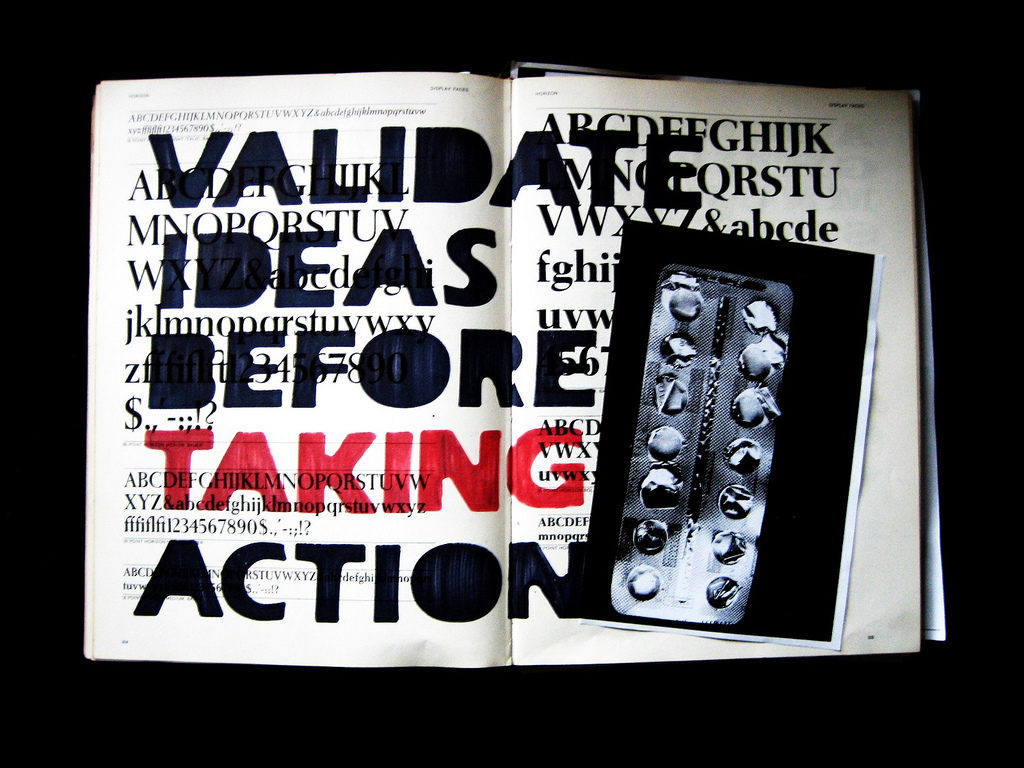A systematic review of the literature and meta-analysis published in European Neuropsychopharmacology examines the efficacy of antipsychotics for individuals experiencing a first episode of schizophrenia (FEP). Despite their efforts to collect rigorous randomized controlled trials (RCTs) on antipsychotics, this study did not identify a single placebo-controlled trial in individuals with FEP. The investigators relied on studies that reported response rates for patients randomized to different antipsychotic drugs.
“As studies in chronic patients revealed substantial placebo effects in recent trials, it would be useful to know how much such effects accounted for the high response rates in our trials,” the authors write.

Researchers conducted this meta-analysis in the hopes of determining how well patients identified as FEP respond to antipsychotics and what factors led to a response.
In schizophrenia research, response to treatment is defined as meeting a minimum percent reduction on Positive and Negative Syndrome Scale (PANSS) and Brief Psychiatric Rating Scale (BPRS) scores. Both of the measures capture symptoms of psychosis experienced by the presenting individual. While varying cutoffs for minimum response have been used, authors of this meta-analysis characterized a 50% drop as “high response” and their primary cut-off of interest.
Researchers looked at data from randomized controlled trials that compared antipsychotic drugs with each other or with placebo among patients with FEP. Only 17 studies met inclusion criteria and provide usable data.
The seventeen studies included represented 3156 participants. None of the 17 were placebo-controlled, and only 12 were blinded. Drop-out rates were high (39%). Only five studies explicitly provided the response rates—of either a 50% or 20% drop in symptom scores—the authors were seeking to assess.
In the five studies that remained, 52% saw a drop of at least 50% in their symptom scores, which was considered “much improved.” Another 19% experienced a 20% drop in symptoms. The authors compare these results to the much lower response rate in individuals diagnosed with chronic schizophrenia (23% reported to have a 50% reduction in symptoms and 53% saw a 20% drop).
Further analyses demonstrated:
- The difference in response rates between blinded studies and open-label studies was not significant
- There was a significantly higher response rate in studies in drug naive patients compared to studies where participants had previous exposure to antipsychotics
- Female patients may have a higher clinical response rates than males
- Severe patients at baseline have a higher response rate than mild patients
- Patients with shorter illness duration had a higher response rate than those with longer illness duration
- Older patients had a higher response rate than younger patients
- Response rates were not found to be associated with study duration
- Response rates were not found to be associated with antipsychotic dosage
In this effort to assess response rates to antipsychotics in first-episode patients, investigators failed to identify any useful placebo-controlled trials in the research literature. This highlights a gap in the evidence base for the short-term use of these drugs in the first episode population. Future research should compare antipsychotic use to a placebo group in order to develop a comprehensive understanding of the efficacy of antipsychotic use amongst first episode patients.
The high drop-out rate in the 17 randomized studies that were analyzed leaves an uncertain picture of the response rate among first-episode patients. Of those who did not drop-out, slightly more than half experienced at least a 50% drop in symptoms and thus were seen as “much improved.”
****
Zhu, Y., Li, C., Huhn, M., Rothe, P., Krause, M., Bighelli, I., … & Leucht, S. (2017). How well do patients with a first episode of schizophrenia respond to antipsychotics: A systematic review and meta-analysis. European Neuropsychopharmacology. (LINK)















These drugs are not medicine. They do not cure anything. They do not treat anything. They are plain and simply tranquilizers with very harmful effects over the long term. We need to quit playing games about these things being medicines.
The work of Loren Mosher, John W. Perry, and others shows that many, if not most people experiencing first episode psychosis can make it through the experience and come out the other side re-integrated. These people go on to live a productive life with little or not problems. Some may experience one more episode but for the most part people move on.
If they are drugged with so-called “antipsychotics” the entire re-integration process is stymied and the person will experience psychosis time after time. What is episodic not becomes chronic. This is criminal to condemn people to existing like this, living in the system and going through life in a drugged state.
These toxic drugs are not medicines. They cure nothing and often induce the very thing that they’re said to take care of.
Report comment
So not counting the large number of dropouts, . which would no doubt lower the response rate, still half of the users didn’t have a strong response, and 30% barely had a response at all. This also doesn’t include placebo response. This suggests that probably half of the users didn’t benefit even in the short run. Not a very impressive display of effectiveness, was it?
Report comment
What does response mean – that the person took drugs and was drugged.
When people come from places like Africa and the Caribbean they really laugh their heads off at the so called mental illness in Europe. It’s not that Africans and Caribbeans don’t recognise genuine distress – it’s the medicalization that seems insane.
Report comment
First Episode Psychosis (FEP) is described here as “Schizophrenia”. I thought “Schizophrenia” was a Long Term Serious and Disabling Disorder.
Report comment
This is so sad- for researchers with a huge budget who fail to even do a comprehensive literature review. Because the northern California Agnews state hospital project that they overlooked was a NIMH funded gold standard, randomly assigned, double blind first episode psychosis study that is still the largest ever study of its kind. The randomly assigned group that got placebo had a 70 percent lower re-hospitslization rate than the group that got antipsychotic meds. See my MIA article- “Remembering a Medicatuon Free Madness Sanctuary” for a report on Agnews and on the publicly funded IWard 20 bed program that I worked in that used the Agnews results to get funded and stay open for 8 years! We had similar efficacy results.
Loren Mosher of Soteria House founded yet another NIMH funded first episode, medication free psychosis program that had remarkable published research results that equaled Agnews. John Bolla did follow up research on Soteria a few years ago that showed the huge unmet need for such programs.
It’s simple- the majority of people who receive a med free residential place to be during their first experience of extreme states/psychosis are diverted from having the 6 month duration of so called symptoms and miss getting the bogus label of schizophrenia. They are diverted from being in the mental health system for possibly the rest of their lives. My doctoral research was on another California med free first episode program called Diabasis House that got similar results.
Michael Cornwall PhD
Michaelcornwall.com
Report comment
Thank you for giving quantitative results for medication free care.
Is it possible to give a rough guess on the effect of antipsychotics on recovery?
Leucht et al has 2009 found (How effective are second-generation antipsychotic drugs? A meta-analysis of placebo-controlled trials) the effect NNT=6 (1). However this was looking at symptoms on the Positive and Negative Syndrome Scale (PANSS).
Bola et al. Cochrane.org 2011 found just 5 studies with real placebo, i. e. RCT. One og them Rappaport et al 1978 found that umedicates pasients managed better, e. g. readmission into hospital. NNH turned out to be 2.9 (NNH= number need to harm).
Nancy Sohler et al. gives 2016 this summary: «For many years, this (…)clinicians’ belief in the need for long-term use of antipsychotic medications strong (Lehmann, 1966) that it has been impossible to design a sound observational study to address the question of efficacy or harm … (O)ur study also could not conclusively evaluate whether long-term antipsychotic medication treatment results in better outcomes on average. We believe the pervasive acceptance of this treatment modality has hindered rigorous scientific inquiry that is necessary to ensure evidence-based psychiatric care is being offered.»
So I understand there are nearly no RCT controlled studies (avoiding «cold turkey» problems) answering my question on recovery.
However is it possible to give a very rough guess?
Approx. 60% or so of first-episode patients may recover without the use of antipsychotics.
Jaakko Seikkula has reported on long term outcome of first-episode psychotic patients treated with Open Dialogue Therapy in Western Lapland approx. 80% recovery (6). Showing the benefit of using not much medication supported by psychosocial care.
Bjornestad, Jone et al. 2017 reported “Antipsychotic treatment: experiences of fully recovered service users”: “(b)etween 8,1 and 20% of service users with FEP achieve clinical recovery (Jaaskelainen et al., 2013)” under the profession’s current protocols.
Now I know this guess is not exact science, but does it seem that approx. 40% of pasients subject to regular medication (e. g. in Norway “National guideline for diagnosis, treatment and follow-up of individuals with psychotic disorders”) loose long term recovery compared to nonmedicated pasients?
Would this be a fair rough guess of the long term effect of antipsycotics on recovery?
Patients have a right to know in advance to decide with informed consent the benefit of symptom reduction in the beginning at the price of long-term reduction of recovery.
I would appeciate your answer based on your knowledge of studies. Thank you in advance.
Report comment
In 1993 Richard Bentall went a bit mad.
He voluntarily took an antipsychotic drug and at first thought he’d get through unscathed.
“For the first hour I didn’t feel too bad. I thought maybe this is okay. I can get away with this. I felt a bit lightheaded”Then somebody asked him to fill in a form. “I looked at this test and I couldn’t have filled it in to save my life. It would have been easier to climb Mt Everest.”
That was the least of his troubles. https://davidhealy.org/wp-content/uploads/2012/08/Richard-B-goes-Mad.pdf
Report comment
I would like to know if they took incarceration into account. Incarceration could tip the scales one way or the other. If the patients are drugged the nurses might treat the patient differently. The drugs are clearly in the patient’s system and this is clear to nurses when the pt drools or paces or twitches. The patient isn’t going to do these from a placebo unless he’s copying other patients while incarcerated, perhaps just to feign being drugged so he’ll get out faster. Which is another factor. Drug response gets you out.
Report comment
Following the more or less simple logic of the reviewed findings I can conclude:
Of the 36% of people not followed up, those that somehow quit the study never to be found for research purposes a smal proportion, anywhere from 1% to 5% or more, died because of the treatment.
Second, the typical patient with “schizophrenia” diagnosis won’t benefit long from the treatment:
1.- First time diagnoses are infrequent. So most patients are not first time diagnoses and therefore are less likely to obtaind a benefit as defined in the meta-analysis. Confusing, but: patient A is withdrawn today, tomorrow the question is: will he benefit from the intervention? Well, HIGHLELY less than if he was never exposed to neuroleptics. Simple logic.
2.- Most people diagnosed are males. Less likely to benefit, as per the review.
3.- Most patients who have treatment probably have less severe “symptoms”, therefore, less likely to benefit from the treatment.
The argument that is the treatment that lessens the symptoms, i.e. that continues the benefit from it, is not a given, it is an assumption, a premise, a supposition that in its magnitude is actually QUESTIONED, by the study.
So in that sense, being logical and consistent, can’t be used to argue about continuing treatment on those bases given using it would be circular reasoning. And somehow disproven by the imagined experiment in my point No. 1.
And that provides a quantitative minimum to estimate the value of continuining treatment, if discontinuing is not about relapse, but MORE IMPORTANTLY about withdrawal.
To disprove my claims 1-3 a series of studies would have to show, against this meta-analysis, that symptom reocurrence or aggravation is NOT due to withdrawal, not simply that the score went “BAD” when discotinuing. It’s faulty logic to conclude otherwise, specially when this study provides a FLOOR to the benefit of continued treatment.
That is actually what they tried to meassure: not the benefit of treatment but of CONTINUED treatment, particularly when MOST patients were not newly treated and the treatment does not last 1-7or 42 days, but months or years.
Just so happens such unstated research hypothesis probably was not stated that way…
Report comment